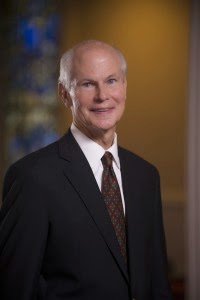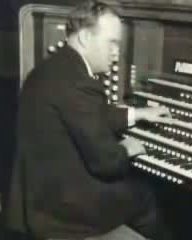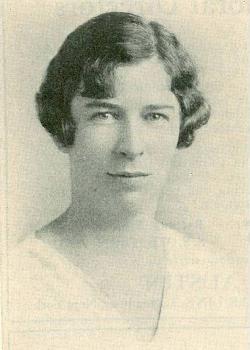Related Research Articles

A hymnal or hymnary is a collection of hymns, usually in the form of a book, called a hymnbook. They are used in congregational singing. A hymnal may contain only hymn texts ; written melodies are extra, and more recently harmony parts have also been provided.
The Christian Science Hymnal is a collection of hymns used in Christian Science church services including Sunday services and Wednesday evening testimony meetings, as well as in occasional informal hymn sings.

Lowell Mason was an American music director and banker who was a leading figure in 19th-century American church music. Lowell composed over 1,600 hymn tunes, many of which are often sung today. His best-known work includes an arrangement of "Joy to the World" and the tune Bethany, which sets the hymn text Nearer, My God, to Thee. Mason also set music to Mary Had A Little Lamb. He is largely credited with introducing music into American public schools, and is considered the first important U.S. music educator. He has also been criticized for helping to largely eliminate the robust tradition of participatory sacred music that flourished in North America before his time.
Sir Sydney Hugo Nicholson was an English choir director, organist, composer, and founder of the Royal School of Church Music (RSCM) and the compiler of The Parish Psalter.
Erik Reginald Routley was an English Congregational churchman, theologian and musician and arguably the most significant hymnologist of the 20th century. His nearly 40 books on theological thought and music of the Christian church are renowned. Raised in Brighton in a Congregational family, he spent his formative years at Lancing College in West Sussex. In 1936 he received an exhibition to Magdalen College, Oxford and afterward ministerial training at Mansfield College, Oxford. Ordained in 1943, Routley held pastorates in Wednesbury and Dartford before returning to Mansfield in 1948 as Chaplain, Lecturer, Librarian and Director of Music. In 1953, he was named to the Mackennal Chair of History. It was during these years that he became visible as an historian and hymn expert. He was also Chaplain of the Oxford Congregationalist Society and left a significant positive imprint on those he worked with. He joined the Hymn Society of Great Britain and Ireland in 1943 and became Editor of the Bulletin, their quarterly newsletter, for 27 years. He also wrote regularly for The British Weekly and the Congregational Monthly. His Oxford DPhil thesis (1951), The Church and Music: An enquiry into the history, the nature and scope of Christian judgement on music became the source for much of his writing for the rest of his life.

W. Benjamin Hutto was an American musician who specialized in writing, producing, and directing choral music. He served as Director of Choral Activities and Director of Performing Arts at St. Albans School for Boys and the National Cathedral School for Girls in Washington D.C. He was also Director of Music and Organist at St. John's Episcopal Church, Lafayette Square.

Thomas Tertius Noble was an English-born organist and composer, who lived in the United States for the latter part of his career.

Arthur William Foote was an American classical composer, and a member of the "Boston Six." The other five were George Whitefield Chadwick, Amy Beach, Edward MacDowell, John Knowles Paine, and Horatio Parker.
Joan Lippincott is an American concert organist and former head of the organ department at Westminster Choir College in Princeton, New Jersey.

Theodore Norbert Marier was a church musician, educator, arranger and scholar of Gregorian Chant. He founded St. Paul's Choir School in Cambridge, Massachusetts in 1963, and served as the second president of the Church Music Association of America.
Andrew Emerson Unsworth is an American organist who has served as an organist for the Salt Lake Tabernacle since 2007, which includes being an organist for the Tabernacle Choir at Temple Square, which is the principal resident musical organization there.

Alexander McCurdy Jr. was an organist and educator who taught a generation of America's most-prominent performers.

Roberta Bitgood (Wiersma) (15 January 1908 – 15 April 2007) was an American organist, choir director, and composer. She was a pioneer of 20th-century American church music, and the first woman to serve as national president of the American Guild of Organists.
Henry Houseley FRCO was an English organist, composer and teacher, who moved to Denver, Colorado.

Cassius Clement Stearns was an American composer of church music. He was born on 23 August 1838 in Ashburnham, Massachusetts, the youngest child of Charles Stearns (1796-1874) and Rebecca Green Stearns (1802–87). He married Gertrude Bottomly (1837-1910) of Leicester, Massachusetts, in Boston on 23 October 1872, the celebrant being the Revd. Phillips Brooks. Stearns died on 7 August 1910 in Sharon, Massachusetts and is buried at Worcester Rural Cemetery, Grove Street, Worcester.

Peter Christian Lutkin was an American organist, choral conductor, and composer.

William Churchill Hammond was an American organist, choirmaster, and music educator. He is noted for being one of the founding members of the American Guild of Organists, and for a lengthy tenure on the faculty of Mount Holyoke College.

Emma Louise Ashford was an American organist, composer, and music editor. She wrote over 600 compositions. From 1894 to 1930 she was an editor at Lorenz Publishing Company, and at its periodicals The Choir Leader and The Organist.
Charles Brenton Fisk was an American pipe organ builder who was one of the first to use mechanical tracker actions, instead of electro-pneumatic actions, in modern organ construction. Originally involved in the Manhattan Project, Fisk made a career change from atomic physics to organ building. He later co-founded C.B. Fisk, Inc., a firm that has built many respected organs worldwide.
References
- 1 2 3 4 The Grove Dictionary of American Music. OUP USA. January 2013. ISBN 978-0-19-531428-1.
- 1 2 "An Interview with Barbara Owen, Church Musician, Organist, Historian, and Lecturer". November 17, 2015.
- ↑ "Current News » American Guild of Organists". www.organlibrary.org.
- ↑ "Barbara Owen - American Guild of Organists". www.agohq.org.
- ↑ Duran, Stacey. "Research: STH: Special Collections: Barbara Owen Hymnal Collection". library.bu.edu.
- ↑ "Barbara J. Owen | Hymnary.org". hymnary.org.